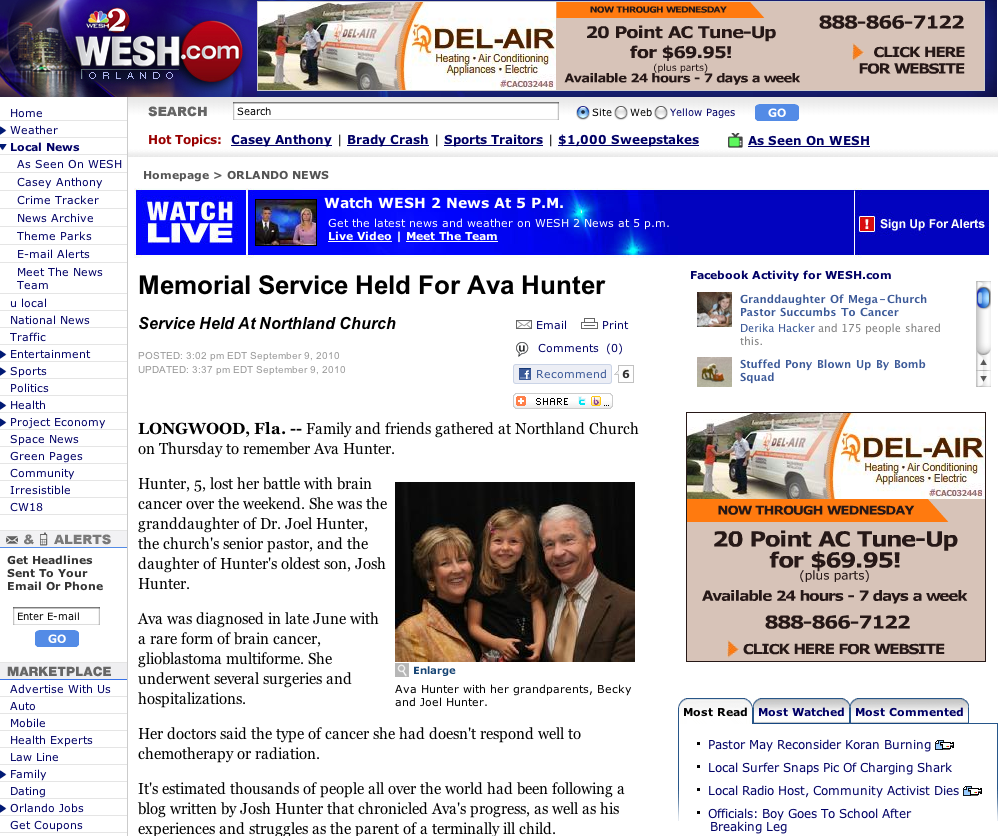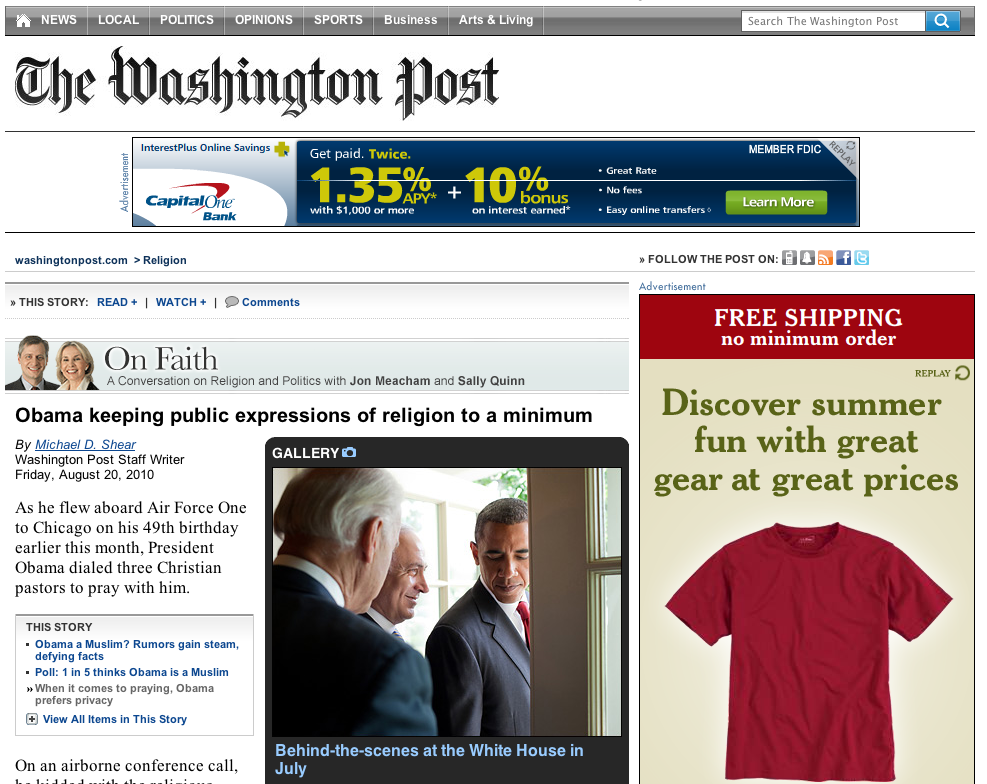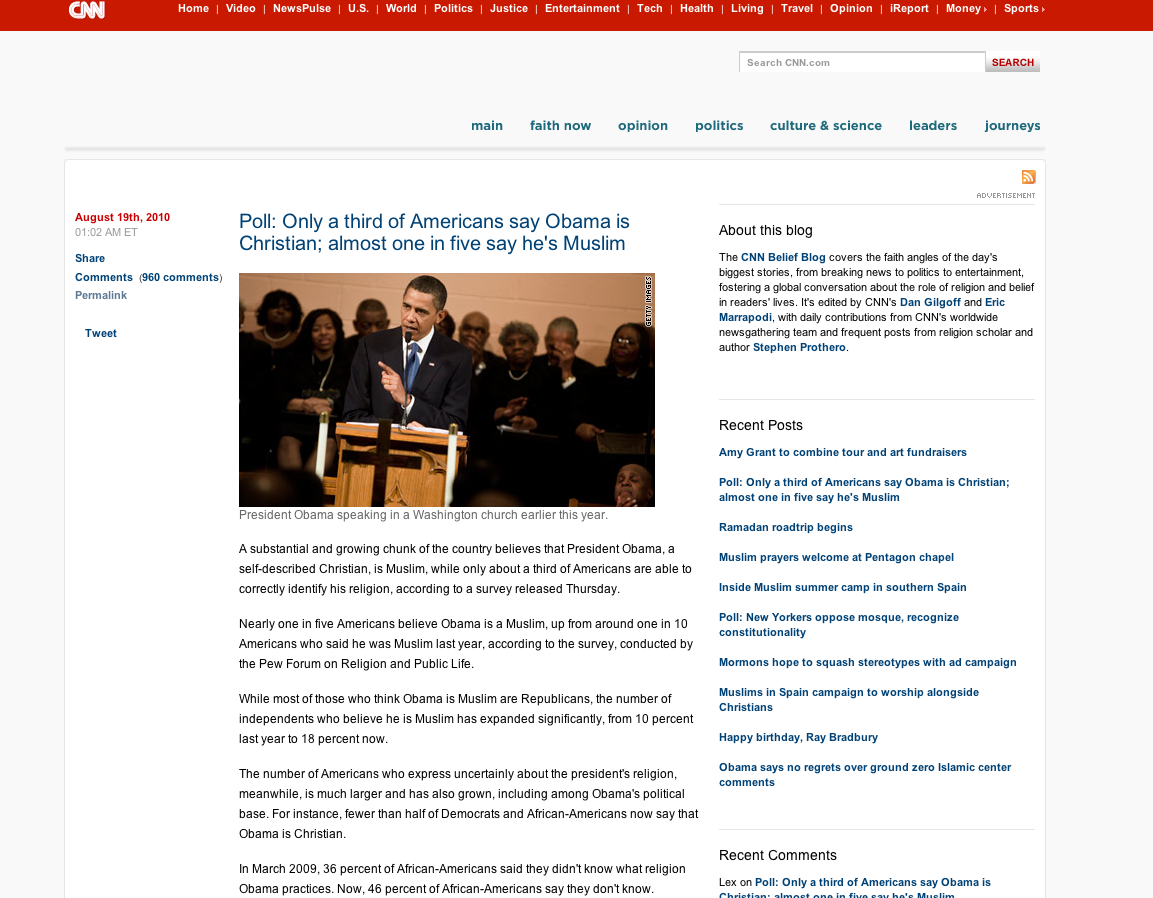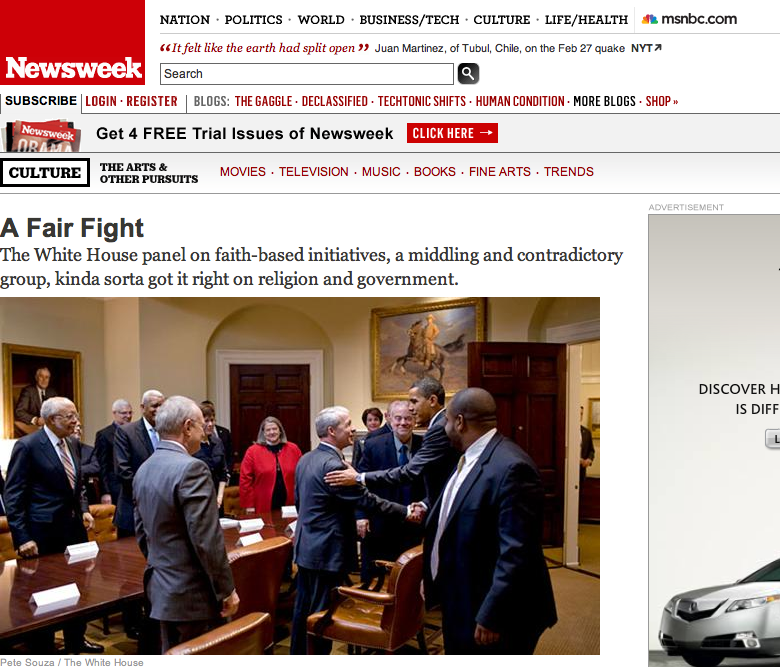Christian Voters Losing Faith in Obama
 President Barack Obama has long sought to open a dialogue between his administration and evangelical religious leaders, and he has even found common ground on some issues with conservative groups like the Southern Baptist Convention and the National Association of Evangelicals.
President Barack Obama has long sought to open a dialogue between his administration and evangelical religious leaders, and he has even found common ground on some issues with conservative groups like the Southern Baptist Convention and the National Association of Evangelicals.
But even though Obama may have won over some religious leaders, he’s losing the battle to win over their congregants.
Though several moderate to conservative evangelical pastors support the president, polls show that a significant percentage of conservative Christians remain skeptical about Obama’s sincerity when it comes to the values that he says they share, and many say they doubt his faith.
Joel Hunter, one of Obama’s religious advisers, who has served on the President’s Advisory Council on Faith-Based and Neighborhood Partnerships, blames a coordinated campaign to spread disinformation about the president, undermining his efforts at outreach to evangelicals. That, he said, leads to suspicions among average conservative churchgoers who suspect Obama is trying “to enlist good people for their sinister causes.”
For every instance of religious moderate leaders supporting Obama on certain issues, “there is this other equal and opposite reaction [from the congregation] that says, ‘Well, it’s all a trick,’” said Hunter, the pastor of Northland, A Church Distributed in Longwood, Fla., and author of “A New Kind of Conservative.”
The growing doubt among evangelical voters comes despite the president’s record of relatively moderate faith positions, such as his decision to invite Pastor Rick Warren of Saddleback Church in California to speak at his inauguration. During the campaign, some conservatives believed Obama was downplaying his party’s long-standing position on abortion rights in favor of more emphasis on reducing abortions.
And his opposition to gay marriage in favor of civil unions drew in moderate and some conservative evangelicals, although Obama insisted that it’s a matter of religious principle, not conventional political wisdom.
Joshua DuBois, the director of the White House Office of Faith-based and Neighborhood Partnership, said the White House has made a “historic” effort to reach voters of faith, and Obama “is proud of his continued and strong support from people of faith at the leadership level and in grass roots.” DuBois insisted that the president “will continue to work with religious communities to move our nation forward."
During the 2008 presidential election, voting patterns show Obama won modest but significant swaths of religious voters, winning a higher percentage of Protestant, Catholic and Jewish voters than John Kerry did in 2004.
But according to a recent Pew Research poll, more white evangelicals erroneously believe that Obama is Muslim than those who believe he is Christian, and 42 percent say they don’t know what religion he practices at all.
“Every day I read a poll [about Obama’s religion] I think it’s odd,” said Leith Anderson, president of the National Association of Evangelicals. “I read all these polls and my mind always flashes back to Jay Leno and ‘Jaywalking,’” referring to the comedian’s routine that pokes fun at Americans’ ignorance of seemingly basic facts.
Groups like the National Association of Evangelicals, who represents some 30 million members and dozens of Christian denominations across the country, have found room to agree with the president on issues like gay marriage and immigration reform — an issue Obama has pledged to tackle during his term.
“I’m not aware of an issue of significant public policy that has so united the evangelical community as immigration reform,” said Rich Nathan, pastor of Vineyard Church of Columbus, Ohio. But Nathan said that support for action on immigration has not filtered down to lay members of evangelical communities, due to “a relative absence of communication — most laypeople have never heard a sermon or teaching on immigration from the pulpit,” Nathan said.
At the same time, some evangelical Christian voters are sticking close to more traditional, conservative political roots. Last month, tens of thousands of Christians rallied on the National Mall, in response to Fox news host Glenn Beck’s call for a return to America’s religious values.
Some religious observers say that Obama must address the potent combination of faith and fear that has only increased since he took office. And he can do that by returning to the rhetoric of hope that he used during the presidential campaign.
“And a whole lot of little things can happen right, but it doesn’t remove the fear,” Hunter said. “You’ve got to address the fear if you’re going to create unity and create a movement.”
FIND THIS ARTICLE AT: http://www.politico.com/news/stories/0910/42028.html






